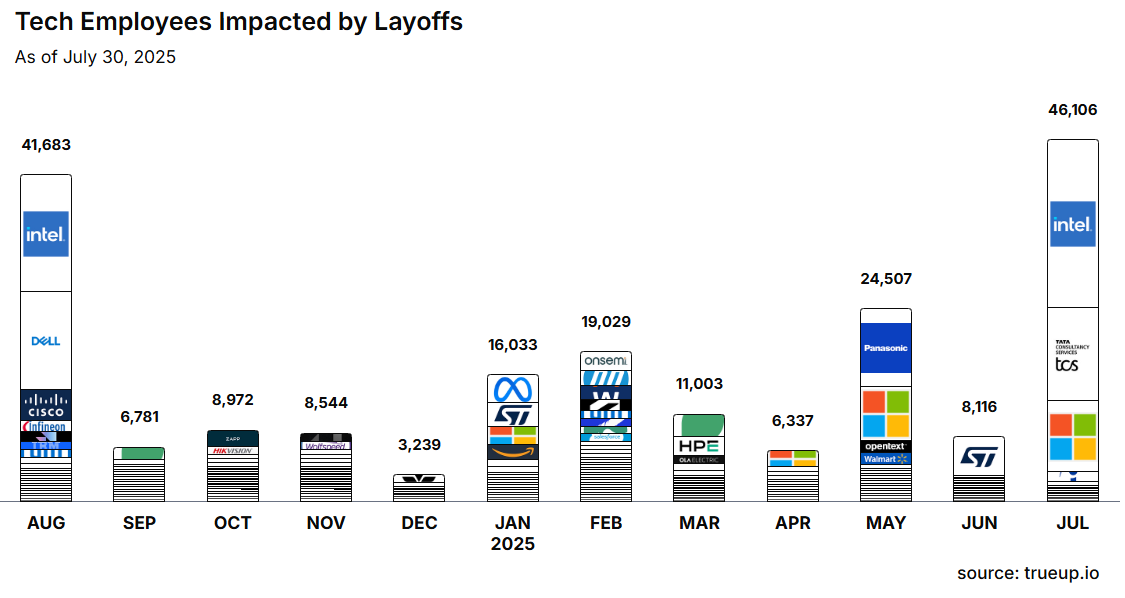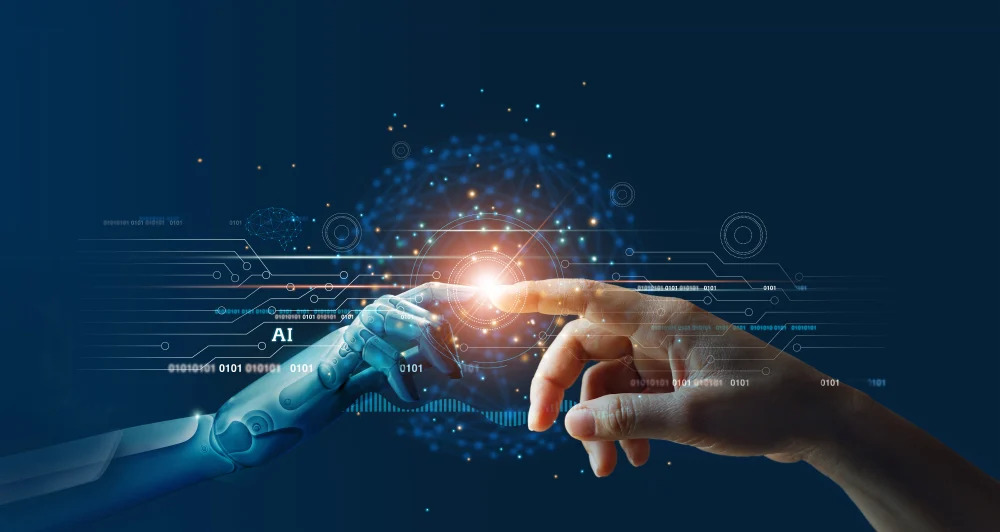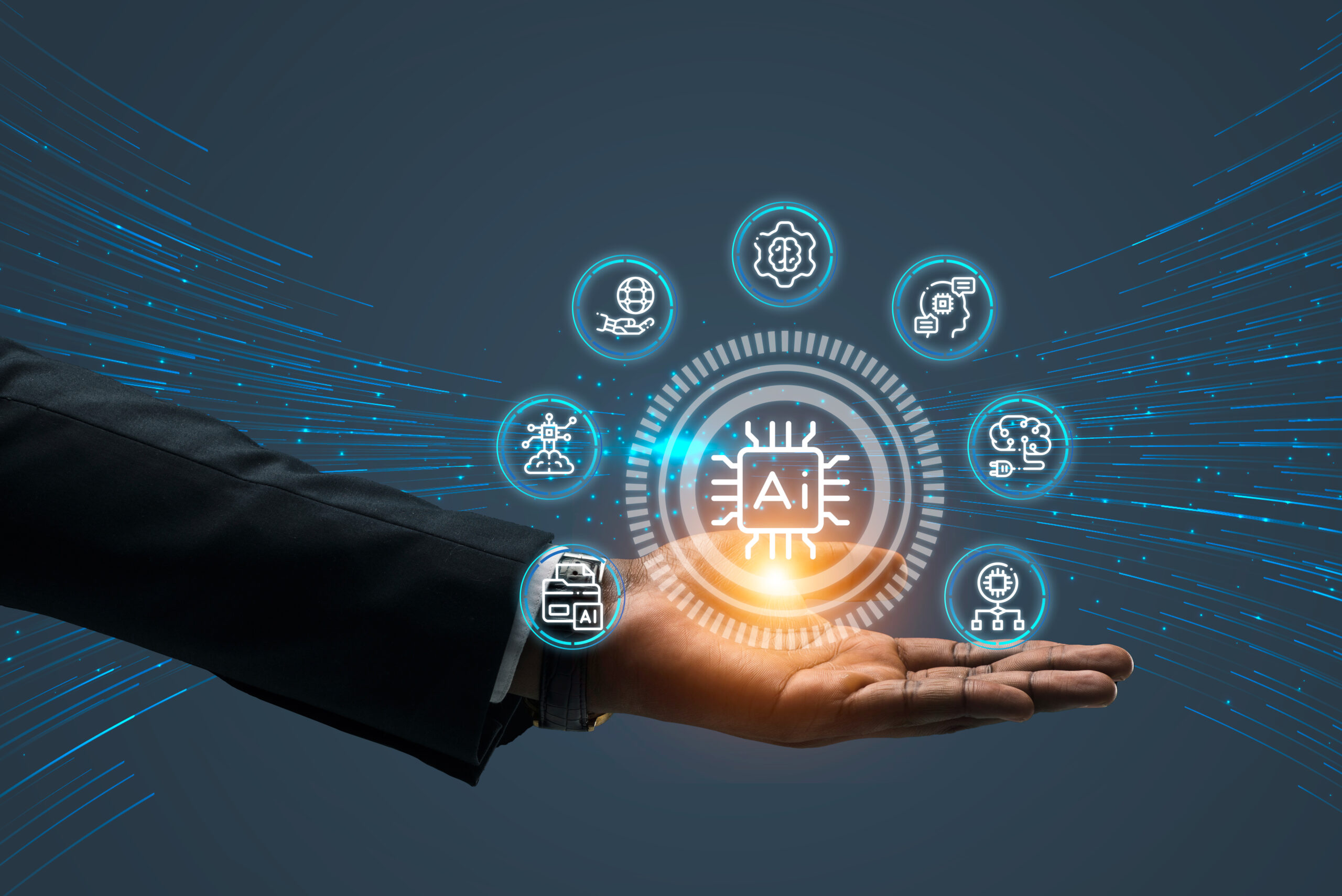Over the past year, we’ve seen generative AI go from something experimental to something foundational. It’s no longer just helping improve products – it’s changing how teams are built, how decisions are made, and which skills companies truly value.
This shift isn’t just about adding AI for speed or cost savings. Many companies are actually reorganizing around it. Development cycles are getting shorter, roles are being redefined, and traditional team structures are being challenged. In 2025, the impact of AI isn’t a future concept it’s already here, moving fast, and reshaping not just what we build, but who builds it and how they work.
AI-Induced Workforce Disruption
In just the past 12 months, it’s become clear that AI isn’t just changing tools – it’s forcing companies to rethink how their teams are structured. For many, the drive toward AI efficiency has come with hard decisions: layoffs, team realignments, and major shifts in how budgets are allocated, often leaning more toward automation and AI development.
Here are a few real-world examples that show just how big these changes are:
Microsoft has reportedly let go of nearly 15,000 employees, with a portion of those cuts linked to the growing use of internal AI tools that streamline software engineering tasks.
IBM reduced its workforce by 8,000, automating HR functions previously handled by people.
Companies like Workday, Salesforce, and Dell have trimmed headcount while doubling down on AI investments.
Klarna heavily automated its customer service operation, only to reverse course after customer satisfaction began to decline.
According to Forbes, over 77,000 tech jobs were cut in 2025 due to changes driven by AI – affecting 342 companies. Microsoft shared that 30% of its code is now written by AI, which means there’s less need for junior developers. At the same time, large tech companies hired 25% fewer recent graduates compared to the year before.
These shifts highlight a growing trend: while AI boosts speed and productivity, it’s also reducing some of the traditional ways people start careers in tech. And this is likely just the beginning of a much larger transformation.
Source: trueup.io

Emerging Roles and Shifting Demand
As AI handles more of the repetitive and manual work, there’s a growing demand for people who can build, manage, and scale intelligent systems. Companies in nearly every industry are actively searching for talent that knows how to apply AI in real-world settings and turn it into something truly useful.
Some of the most in-demand roles today include:
AI/ML Engineers – who build and train machine learning models
LLM / Prompt Engineers – who fine-tune large language models and design effective prompts
MLOps Specialists – who manage the infrastructure needed to deploy and maintain AI models
AI Product Managers – who lead the strategy and development of AI-powered features
Applied Researchers – especially in areas like NLP, computer vision, and generative AI
These roles go far beyond basic coding. Employers are looking for people who are comfortable working with modern AI tools and frameworks like LangChain, HuggingFace, and OpenAI APIs, as well as those familiar with vector databases and AI-related privacy and ethics concerns.
In 2025, the right AI talent is becoming a major competitive advantage – especially for companies working in fast-moving fields like consumer tech, biotech, fintech, and advanced manufacturing.
AI in Innovation and Product Acceleration
One of the most noticeable ways generative AI is driving change is by speeding up how fast companies can launch new products. With AI-powered tools, teams can now prototype, test, and personalize features in days – things that used to take weeks or even months.
In many cases, AI is also helping shape product strategy. Forecasting tools analyze user behavior, product usage, and market trends, giving teams the insights they need to decide what to build next.
From what I’ve seen, the companies using AI not just in their products but across their internal workflows – in R&D, design, and marketing – are the ones moving faster and staying ahead. It’s no longer just about building something smart. It’s about how quickly and efficiently you can get it into the hands of users. That shift is changing how teams are built – they’re smaller, more focused, and structured around using AI to do more with less.
Why the Team Behind the Product Matters More Than Ever
A successful product is rarely the result of a great idea alone – it’s the outcome of strong execution by the right team. The way a company builds and develops its internal talent is increasingly becoming a key indicator of whether it can scale its innovations and stay competitive over time.
Here are a few important questions to ask:
Is the company using AI effectively within its own teams and internal processes?
Do engineering leaders understand and apply modern AI tools in their work?
Does the hiring strategy support long-term growth and the ability to scale AI solutions?
As AI becomes a bigger part of the products we use every day, the people behind those products need to grow with it. Today, it’s not just about using the latest AI tools. What really matters is having a team that knows how to work with them, can adapt quickly, and keeps learning. Companies that invest in people like that are the ones that move faster and stay competitive – especially in a world where technology is changing every day.
Conclusion
Generative AI is no longer something distant or experimental – it’s already driving major shifts across industries. In 2025, it’s clear that the companies moving forward aren’t just adding AI to their products – they’re rethinking how teams are built, how work gets done, and how to grow in a completely new environment.
As someone who analyzes industry trends, the most successful organizations are the ones that treat AI as a core part of their business – not just a side initiative or short-term experiment. Instead, they make AI part of their core strategy – bringing together the right people, tools, and goals to move forward with clarity and flexibility.



